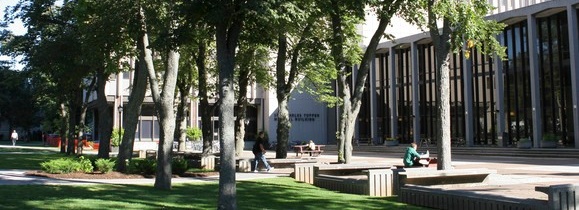Program Structure
- PhD: 5 years is the typical time to complete
Transfer from MSc to PhD
If you are in the MSc program, you can transfer to the PhD program with the recommendation of your supervisory committee. This should happen no later than the 5th term of study.
Degree Requirements
PhD candidates must satisfactorily complete:
- MNSC 5230.01 Medical Neuroscience PhD Graduate Seminar and MNSC 6101.03 Principles of Neuroscience: Cellular & Molecular Neuroscience. (Additional courses may be required if no prior neuroscience background.)
- A comprehensive examination (PHDP 8000.00: Doctoral Comprehensive Requirement) should be taken in the second year of the program or not later than one full year prior to thesis submission.
- Thesis research (MNSC 9530.00: PhD Thesis), preparation and oral defense of a thesis are required.
Teaching
PhD students gain teaching experience by assisting, during two academic terms, with the laboratory component of courses delivered by the department.
Seminars
You are required to attend departmental seminars. You are also required to give two seminars on your research during the course of your study.
Choosing a research supervisor
Before you begin the application process, you’ll need to find a supervisor who is able to support your research interests and has the capacity to take on the responsibility. Start by checking out our faculty profiles, then get in touch with them directly.
Assemble a supervisory committee
In consultation with your supervisor, you need to assemble a supervisory committee. The minimum membership for both MSc and PhD Supervisory Committees is comprised of the student’s Research Supervisor and two other faculty members including the Chair, at least one of whom is from the Department of Medical Neuroscience. Students with two Co-supervisors will have a four-member committee, including the Chair.
The function of the supervisory committee is to evaluate and advise you about your thesis research and to evaluate the progress of your academic study and research. The Faculty of Graduate Studies suggests you organize meetings at least twice a year.
PhD preliminary exam
You must pass a PhD preliminary (oral) exam, designed to test the depth and breadth of your knowledge in areas related to your research. Students are encouraged to take the exam in their second or third year of PhD study, and it must be taken at least one year before your PhD thesis defense.
PhD defence
You must prepare a written thesis and defend it orally before an examination committee. For May convocation, the thesis must be submitted to FGS early in April. For October convocation, the thesis must be submitted to FGS late in August.
Degree time limits
Graduate students have a maximum period of time to complete all degree requirements. The normal upper limits for completion of a Doctoral degree is 6 years. A student cannot register in a program beyond 10 years from their initial registration.

